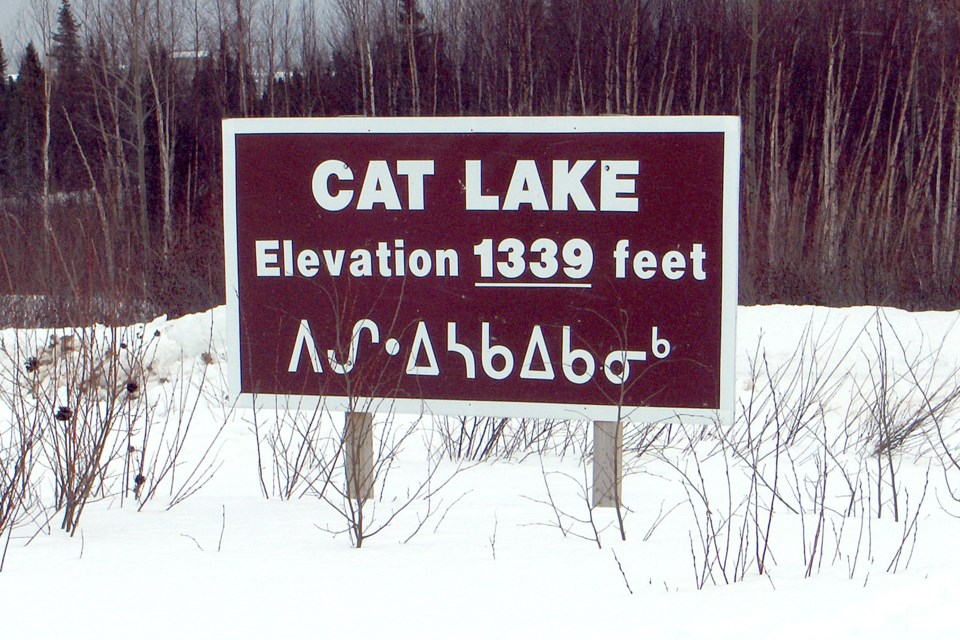TORONTO – The Ontario government has not fulfilled its duty to consult First Nations on mining-related matters, Cat Lake Chief Russell Wesley said Tuesday in a news conference at Queen’s Park.
“I foresee a trend where First Nations are increasingly forced into the courtroom, like what happened to us,” Wesley told reporters.
“We want free, prior and informed consent,” he added, referring to a right enshrined in the United Nations Declaration on the Rights of Indigenous People.
Cat Lake scored a victory in an Ontario court Feb. 23 when a judge issued an interim order putting First Mining Gold’s construction of an access road in the First Nation’s traditional territory on pause.
The Vancouver-headquartered gold developer responded three days later with a news release saying it is disappointed by Cat Lake’s opposition to a road intended for worker safety.
“First Mining continues to listen to the concerns of Indigenous communities and is always willing to meet with community leaders to discuss these and any other matters regarding our activities in their traditional territories,” a company official is quoted as saying in the news release.
Cat Lake’s issue is mainly with the province rather than First Mining, Wesley said at the news conference.
He said his First Nation is still considering the development of First Mining’s Springpole gold project within Cat Lake’s traditional territory.
But Cat Lake needs more time to look into how surface mining near Springpole Lake could impact Indigenous rights to hunt, fish and trap in the area, as well as the impact on possible sacred sites, he said.
The Ministry of Natural Resources and Forestry “significantly destabilized” that review process when it issued a road permit against Cat Lake’s wishes, he said.
“Ontario’s actions here fall far below their constitutional duty to consult and accommodate Cat Lake First Nation’s rights,” he said, noting as well that the First Nation’s council had declared a moratorium on mining activity in September.
“In short,” he said, “Ontario forced Cat Lake First Nation into the courts.”
Since First Mining’s road permit was issued “while Cat Lake First Nation lacks year-round road access,” he said, it appears the Ontario government is more concerned about miner safety than Cat Lake members’ well-being.
First Nations and resource companies can reach agreements with “mutual benefits,” said Frank McKay, chair of Windigo First Nations Council.
“If they get a road, we get a road,” McKay said. “If they get electricity, we get electricity also.”
Tuesday’s news conference was held three days after a fire destroyed Cat Lake’s nursing station, prompting the First Nation to declare a state of emergency.
Kiiwetinoong MPP Sol Mamakwa, whose riding includes Cat Lake, hosted the news conference in Ontario’s legislative building in Toronto.
